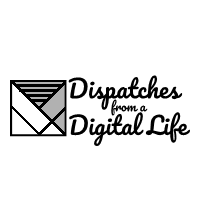A Day Without Facebook

What would happen if Facebook disappeared overnight?
I was forced to contemplate this possibility the other day as I desperately tried to post on Facebook and Instagram, to no avail. I closed all 600 tabs and opened a new browser. Still, nothing. I used a different browser altogether. Nada. No matter what I did, I kept getting the same error message. I checked my email and watched a Beyoncé video on YouTube; the internet seemed to be working fine. If the internet wasn’t broken, could it be that Facebook/Instagram was the problem? Google confirmed my suspicion: technical difficulties.
I’ve worn many different hats when it comes to social media behavior, from unhealthily obsessed to quitting cold turkey. Currently, I’m trying my hand at using social media professionally. I have no far-fetched dreams of becoming an influencer who makes piles of money by posting selfies with my cat (although that would be cool). I simply want to harness a bit of the economic potential that social media has to offer—just a tiny bit! So, I’ve been trying out strategic hashtags and attempting to post consistent content. (And I’ve started calling my posts “content,” apparently?) Which is what I was trying to do on this random afternoon when I discovered that the social media behemoth that is Facebook (which owns Instagram and WhatsApp) was down. It wasn’t totally down, but for all intents and purposes, it was broken.
Now, this technological disruption was merely a hiccup in my day, but I immediately thought about all the companies out there who rely on social media 100% to conduct business. What was this little hiccup costing them?
I’ve been thinking about social media for a long time. As a millennial, I was among the first users of the original Facebook, back when it was exclusively for students attending a few New England universities. Since then, I’ve taken an experimental approach to social media, trying out various platforms and even taking a yearlong social media sabbatical last year. A few years back, while doing research for a book proposal about my sabbatical, I connected with people far and wide who made their living from these platforms—artists, activists, scientists, entrepreneurs, even stay-at-home moms. Each time, I asked them one question: would you be able to do what you do today without social media? And the answer every time was a resounding NO WAY.
This question—“What would happen if Facebook disappeared overnight?”—makes me think of the satirical movie, A Day Without A Mexican. Like immigrants living and working in America, social media is woven into every aspect of our society. Of course, we’ve existed in a world without social media in the past, but that is far from our current reality. Today we live in a world where our economy, personal relationships, politics, entertainment, activism and communication are deeply embedded in these platforms. You could even say we’ve come to rely on them. And yet, three major social media platforms are owned by the same company.
As an organic gardener, my plant nerd friends and I talk a lot about diversity. Crop diversity means a diversity of insects and microorganisms above and below the soil, which ensures healthier plants. A monoculture, on the flip side, is weak and susceptible to disease. One pest can wipe out an entire crop overnight.
Unfortunately, we’re starting to see the negative—and dangerous—repercussions of social media. Studies have shown that social media has fostered rampant growth of white supremacy, both nationally and internationally. In response to the recent New Zealand massacre that was live-streamed on Facebook, Australia just passed a law subjecting social media execs to prison time if they don’t remove violent material fast enough.
Social media has transformed the way we communicate and share information, there’s no doubt about that. But this kind of rapid connection allows for unfiltered transmissions, and everything is spreading fast: the good, the bad, and the ugly.


